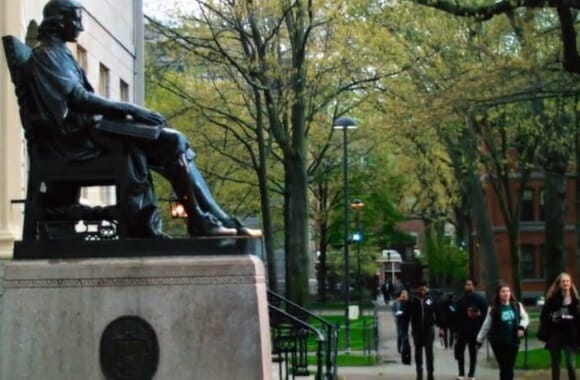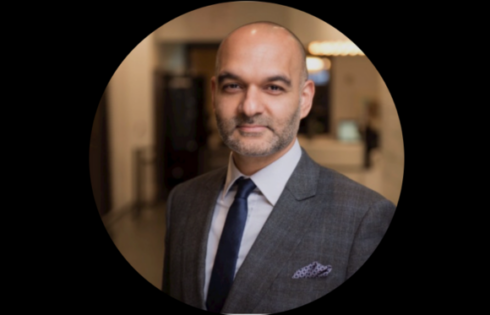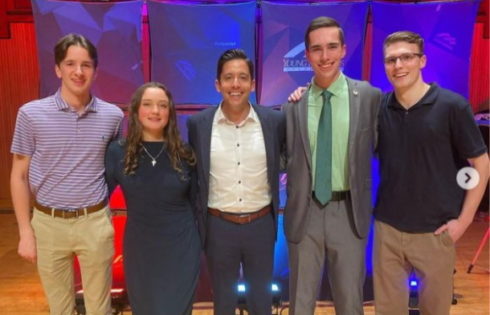
‘Withholding benefits from students who fail to conform’ is unlawful
A Harvard administrator’s interview with the campus newspaper is now coming back to haunt the elite university.
A federal judge refused to dismiss a sex-discrimination lawsuit against Harvard by single-sex organizations that have been targeted for accepting only men or women.
When Harvard first floated its plans to penalize final clubs, sororities and fraternities in 2016, Dean of the College Rakesh Khurana told The Harvard Crimson that the unrecognized single-sex groups “remain at odds with the aspirations of the 21st century society.”
A year and a half later, Harvard finalized rules that ban members of “unrecognized single-gender social organizations” from obtaining leadership positions in Harvard student groups or athletic teams. It also made members ineligible to receive Harvard endorsements for prestigious scholarships such as the Mitchell and Rhodes.
“It is certainly plausible that Harvard’s purported ideal of the ‘modern’ man or woman is informed by stereotypes about how men and women should act,” U.S. District Judge Nathaniel Gorton wrote in Friday’s opinion, citing the interview with Khurana (below). “Withholding benefits from students who fail to conform to such stereotypes violates Title IX.”
In validating a “plausible claim under a theory of gender stereotyping,” Gorton also cited Harvard’s original rationale for its policy: to stop the sexual assault purportedly associated with single-sex clubs.
It wasn’t the only time the judge would cite Harvard employees’ own words to justify letting the lawsuit proceed.
Harvard’s aggressive tactics to convince clubs to go coed got it sued in state as well as federal court. The state lawsuit, which has fewer plaintiffs, remains open but has seen no action since May, according to the court docket. Its “next event” is a hearing Sept. 10 in Boston.
MORE: Harvard sued twice for sanctions on single-sex clubs

‘Misguided efforts at social engineering’
Brooklyn College Prof. KC Johnson, who closely tracks Title IX litigation, called Gorton’s decision a “near-total setback for Harvard on [an] issue where the university’s behavior has been an embarrassment.”
The Foundation for Individual Rights in Education, which pressured Harvard to drop its plans from the start, called the ruling a “significant blow” to the school’s “misguided efforts at social engineering.”
It’s also a blow to “Social-Engineer-in-Chief Rakesh Khurana,” Samantha Harris, vice president for procedural advocacy, wrote in a blog post.
“Three years ago, Khurana and then-Harvard President Drew Gilpin Faust ignored FIRE’s warnings not to do this,” she wrote. “We hope that this time, Khurana and Harvard will heed the warning of a federal judge and withdraw its wrongheaded and discriminatory policy.”
The Crimson, whose quotation of Khurana helped get the university in trouble, has not reported on the ruling as of Wednesday morning.
It did report, however, on a lawsuit against Harvard that was dismissed for lack of standing the day before Gorton’s ruling. That suit was filed by unnamed plaintiffs who claim race and sex preferences at the Harvard Law Review have the effect of discriminating against those who submit articles to it.
Like punishing gays and lesbians in the workplace
The federal suit was brought by Kappa Alpha Theta, Kappa Kappa Gamma, Sigma Chi, Sigma Alpha Epsilon and its Harvard chapter, and three unidentified male students. They contend the Harvard policy violates both Title IX and the Massachusetts Civil Rights Act.
Judge Gorton dismissed the all-female Theta and Kappa as plaintiffs because they shuttered after Harvard announced the policy, and thus have no standing to sue. The women’s groups have borne the brunt of the policy, lacking the resources and history of the all-male clubs to continue operating.
The Independent Women’s Forum finds it “ironic” that the all-female group were dismissed for lack of standing, it said in a press release Tuesday.
“The reason that these sororities no longer have active chapters, of course, is because of Harvard’s policy,” said Erin Hawley, senior counsel for its Center for Law and Liberty. She previously warned that Harvard’s action against women’s groups signaled it could next try to punish students who attend churches that don’t allow female clergy.
As an upperclassman who is not subject to the policy, which only took effect for incoming students in fall 2017, the third unnamed male also lacks standing, Gorton said.
While the other two males have standing, the judge instructed them to “reveal their identities if they choose to proceed” – meaning Harvard could punish them for violating the policy.
Harvard lost its motion to dismiss on everything aside from the limited standing issues.
Members of the all-male clubs “would have full access to the subject opportunities on campus” – leadership, captaincies and fellowships – were it not for “Harvard’s disparate treatment” of them based on their club membership, Gorton wrote. The policy also hinders their ability to raise funds and sustain their membership.
Gorton agreed with the plaintiffs that the “equal application” of the policy to both sexes is “irrelevant” for Title IX purposes because it “treats individual students differently based on their sex.”
He compared the single-sex club situation to gay men and lesbians in the workplace. Employment-law precedents frown on “the equal application of the employer’s policy to both men and women” because the policy nonetheless draws “distinctions” based on sex.
MORE: Harvard cons anti-rape activists to push through anti-women rules

Can both hurt women more and be motivated by anti-male bias
“[I]t is impossible for Harvard to apply its Policy without considering both the sex of the particular student and the sex of the other students with whom he or she seeks to associate,” the judge wrote.
This would lead to the result that women but not men could join all-male clubs without sanction by Harvard:
It is simply irrelevant that the Policy applies equally to both male and female students. A policy is no less discriminatory or motivated by sex simply because it applies equally to members of both sexes.
The remaining plaintiffs also have made plausible claims on “associational discrimination” under Title IX, even though there’s no direct caselaw on the subject in the 1st U.S. Circuit Court of Appeals, which oversees Gorton’s court, he said.
That’s because the appeals court often looks at the “Title VII [employment] context to analyze the scope of Title IX,” the judge said.
Gorton even allowed anti-male bias allegations to continue, citing his previous analysis on gender stereotyping.
Just because women have been hit harder by the policy than men doesn’t mean it was “not originally motivated by bias against all-male social organizations,” the judge said. He cited allegations that “various Harvard committees and administrators have made disparaging comments” about the male-only final clubs (“a certain subset of men”) – that they “promote sexual violence, misogyny and bigotry.”
At least the policy is not ‘coercive’
On the civil rights claims under state law, the student organizations failed to demonstrate that the policy itself “constitutes threats, intimidation or coercion,” Gorton said.
Students who are subject to the policy knew about it before enrolling and chose to attend Harvard anyway, he noted. This was the lone silver lining for the university, aside from a few plaintiffs being removed.
The remaining plaintiffs can still argue MCRA claims, though, that particular individuals “suffered other threats of discipline or intimidation” by joining the prohibited groups, or that they were “coerced into not joining” those groups.
Harvard said it disagreed with the judge that a policy that treats men and women equally can nonetheless violate the law.
Spokesperson Rachel Dane told The Boston Globe that the policy is a “measured and lawful policy that treats all students equally.” She praised the court, however, for finding that “the policy is not coercive” under state law.
Plaintiffs’ attorney R. Stanton Jones told the university to accept that its policy is “discriminatory twice-over,” as Gorton explained: It constitutes sex-based discrimination toward the social organization and the student who associates with it.
In the statement cited by the Globe, Stanton said Harvard should “stop discriminating against its students and trust them to make their own choices about who to associate with.”
MORE: Harvard task force wants to eradicate all private social groups
IMAGES: Minerva Studio/Shutterstock, Christopher Michel/Flickr
Like The College Fix on Facebook / Follow us on Twitter






Please join the conversation about our stories on Facebook, Twitter, Instagram, Reddit, MeWe, Rumble, Gab, Minds and Gettr.